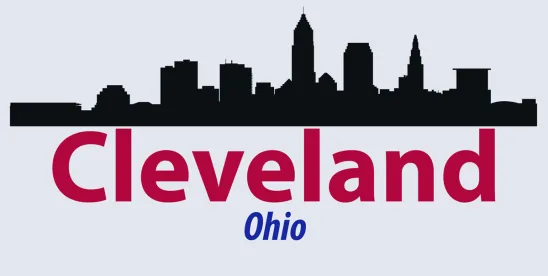In April 2025, the City of Cleveland approved Ordinance No. 104-2025 (the “Ordinance”), which will impose a salary history ban and create a pay disclosure requirement for employers starting Monday, October 27, 2025.
The latter provision – the first in the Buckeye State to require affirmative disclosure of wages or salary ranges for advertised positions – distinguishes this Ordinance from pay equity laws already enacted in other Ohio municipalities. The new pay equity measures will apply to the City of Cleveland and private employers with at least 15 employees working within Cleveland, including job placement and referral agencies working on behalf of another employer. We discuss both requirements below.
Salary History Ban
Like similar laws in Cincinnati, Columbus, and Toledo, the Ordinance broadly prohibits covered employers from:
- Asking about an applicant’s current or prior salary, including wages, commissions, hourly earnings, and any other monetary earnings, as well as benefits (collectively, their “salary history”);
- Screening applicants based on their salary history (including requiring an applicant’s former salaries to meet a threshold);
- Relying solely on an applicant’s salary history when deciding whether to make an offer of employment or determining their compensation; and
- Refusing to hire or otherwise retaliating against an applicant for not disclosing their salary history.
The new salary history protections do not apply to independent contractors, but otherwise cover most individuals applying for full-time, part-time, temporary, seasonal, contracted, and commissioned roles that will be performed for a covered employer in Cleveland, regardless of whether the person is interviewed for the role. However, the ban does not apply:
- when federal, state, or local law specifically authorizes using salary history to determine compensation;
- to internal transfers or promotions;
- to salary history disclosures made by an applicant, if voluntary and unprompted;
- to re-hires, where prior pay history is already known;
- when pay rates are established through collective bargaining; or
- to governmental employers other than the City of Cleveland.
The Ordinance also carves out an exception for information inadvertently obtained through a background check, as long as such information is not “solely relied upon” to determine an applicant’s salary.
Additionally, covered employers are free to ask about the applicant’s salary expectations and any objective measures of the applicant’s prior productivity, including revenues, sales, or other production reports. Employers may also ask applicants whether they would forfeit any unvested equity or deferred compensation if they resign from their current job.
Pay Disclosure Mandate
The Ordinance also requires covered employers to disclose the salary range or scale when advertising most job openings. The disclosure must include any compensation the successful candidate will receive, including wages, commissions, hourly earnings, and other monetary earnings, as well as benefits. Notably, the Ordinance does not specify any limits for determining the breadth of the salary range.
The pay disclosure requirements apply to any notice, advertisement, or formal job posting for roles that will be performed in Cleveland, except for postings related to independent contractors, internal transfers or promotions, or a position where the salary is determined by collective bargaining procedures. And like the salary history ban, the pay disclosure mandate exempts governmental employers other than the City of Cleveland.
Enforcement Provisions, Including an Opportunity to Cure
The Ordinance permits any person (including non-employees) to file a written complaint against a covered employer with Cleveland’s Fair Employment Wage Board (FEWB) within 180 days of an alleged violation. If the FEWB determines by a preponderance of the evidence that the employer has violated the Ordinance, the Board will notify the employer and attempt to resolve the complaint “by education, conference, conciliation, and persuasion with all interested parties.”
An employer will face no penalty if, within 90 days of being notified of the complaint, the employer corrects its practices and provides the FEWB with a plan to adhere to the Ordinance. However, an employer that does not remedy its practices within the 90-day deadline may face civil penalties up to $1,000, $2,500, or $5,000, depending on whether it had prior violations within the last five years. The FEWB will adjust the amount of the civil penalties annually by February 1 in connection with changes to the consumer price index.
Potential for State Pushback
While several Ohio cities have a history of enacting their own labor and employment laws, the State of Ohio does not always welcome these measures. For example, Cleveland sought to raise its minimum wage to $15/hour in 2016, but before residents could vote on the proposal, the state legislature passed a law prohibiting municipalities from setting their own minimum wages. Although the state has not reacted to Columbus, Cincinnati, or Toledo’s pay equity measures to date, the broad requirements of the Cleveland ordinance could push the Ohio legislature to intervene. We will watch for any developments related to this Ordinance and similar local laws.
In the meantime, covered employers should watch for any further guidance and start to evaluate their job advertisements, employment applications, and other hiring and salary determination processes to ensure compliance with the City’s pay equity measures before they take effect this October.





 />i
/>i
